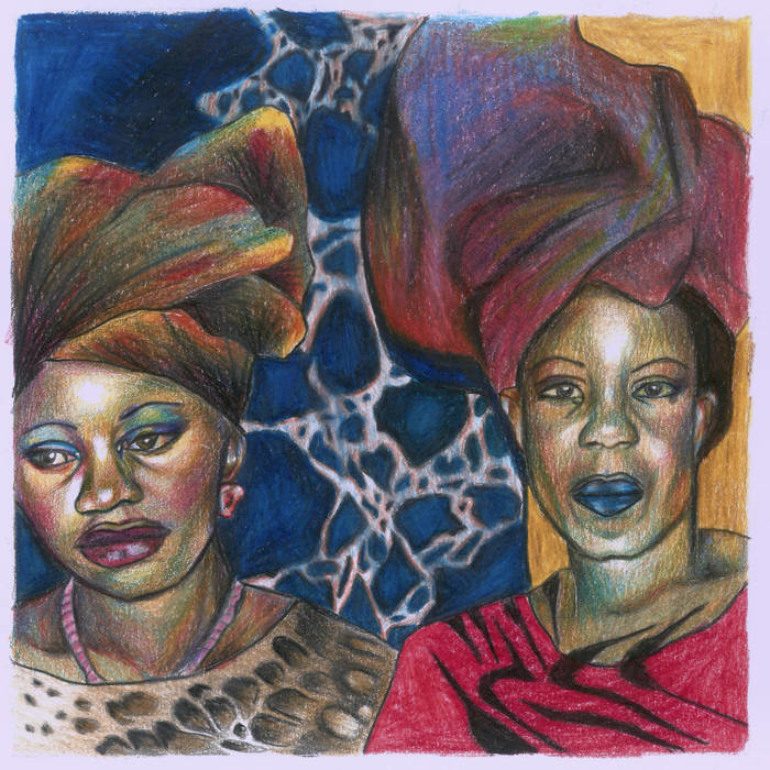

Atmospheric lo-fi with raw introspection
MIKE’s Showbiz! is an intricate, 23-track exploration of success, struggle, and self-reflection, delivered through a dynamic low-fi hip-hop aesthetic. The album’s sonic landscape constantly shifts between clarity and distortion, mimicking how memories fade in and out of focus or a television signal momentarily sharpens before dissolving into static. Through warm, warped samples, jazz-inflected instrumentation, and an ever-present sense of nostalgia, Showbiz! It Feels like flipping through an old scrapbook.
The opening track, “Bear Trap,” immediately sets the album’s tone with its muffled bass riff and a piano melody that sounds like it’s breathing life into the track. Distorted like a distant phone call, a vocal sample weaves itself into the production while MIKE delivers poignant verses over a skeletal drumbeat. A slowed-down vocal sample acts as an ethereal backup singer, reinforcing the track. The song eventually transitions into a more electronic-leaning hip-hop groove, bridged by a sample that seamlessly shifts the energy.
“Man in the Mirror” changes pace with an upbeat, groove-heavy foundation. A subdued bass and tight drumbeat keep the track anchored while a synth-based piano loop cycles in the background. The song plays with volume dynamics, periodically dipping before swelling back into complete clarity. This push and pull creates a hypnotic, head-nodding rhythm, emphasizing the vocal delivery.
“Artist of the Century” stands out with its raw, almost discordant flute, which injects a sharp and unexpected texture into the track. The flute’s piercing quality, rolling drums, shaker percussion, and sporadic guitar plucks create a dynamic, ever-shifting instrumental. MIKE’s lyrics continue the album’s overarching theme of ambition and drive, reinforcing the tension between artistic pursuit and the weight of expectations.
The dreamlike “Da Roc” marks a shift in tone, leaning into classic lo-fi hip-hop aesthetics. A soft drum pad and drawn-out synth chords create an ethereal, floating sensation. MIKE’s words hit with more punch, contrasting the track’s hazy backdrop. Throughout the song, snippets of a phone call sample emerge, with someone expressing excitement for Showbiz!—a moment of meta-commentary that subtly nods to MIKE’s relationship with the industry.
“The Weight” pulls the album back into traditional instrumentation, featuring a muffled drum kit, an out-of-tune piano, and a saxophone drifting through the foreground. This organic instrumentation is quickly contrasted by “The Lost Scribe,” which returns to dreamlike textures with airy guitar, soft pianos, and backbone drums. The album’s frequent shifts between lo-fi production and traditional jazz-leaning arrangements create an unpredictable yet cohesive sonic journey. Nearly every track closes with looping vocal samples or snippets of conversation, reinforcing the album’s stream-of-consciousness style.
The title track, “Showbiz,” is a theatrical centerpiece that begins as if MIKE is stepping onto a stage. Applause echoes in the background while bass, guitar, and trumpet build anticipation. His lyrics feel almost improvised, delivered with the energy of a freestyle. As the track progresses, subtle background drums emerge just as a sample kicks in, creating an atmosphere that feels both immersive and cinematic.
The album closes with “Broke (Diamonds Dancing),” a track that encapsulates Showbiz!‘s themes of transformation and uncertainty. It opens with pulsing synths and distant, echoing voices resembling a sci-fi spaceship’s startup sounds. The vocals are textured with an almost robotic filter, reinforcing the track’s surreal quality. As the song builds, the layered synths create a sense of weightlessness, mimicking the feeling of floating through the sky. Just as it reaches its climax, the track suddenly fades out, leaving a feeling of quiet satisfaction behind.
The album’s balance of warm, nostalgic samples with moments of sharp clarity makes it a very immersive listen. The seamless interplay between lo-fi and jazz-inflected production, combined with MIKE’s introspective lyricism, lingers, dissolving into memory like an old tape rewinding itself.
